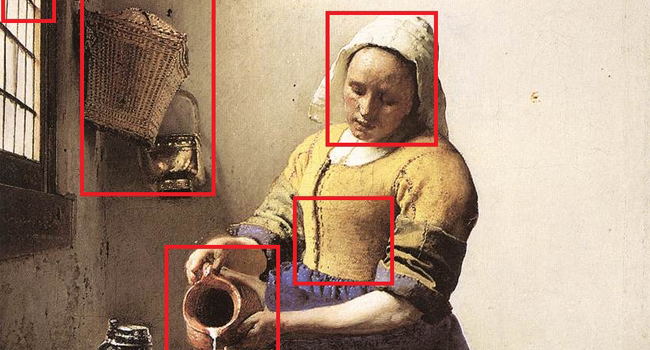
Visual methods
This four day course introduces different perspectives and techniques in visual methods.
Tidspunkt
27.02.2018 - 02.03.2018
Beskrivelse
The first day involves general meta-reflections on methodology in the social and human sciences by a number of leading figures in the field, such as Jaan Valsiner and Svend Brinkmann. The three days to follow provide practical guidance for visual data collection and analysis, including such techniques as working with various visual props, image analysis, photo-elicition, subjective cameras, among others. The course makes the general argument that visual material can be used both as a powerful complement to traditional verbal and textual data, as well as site of investigation in its own right.
Programme
Day 1. General reflections on methodology – Jaan Valsiner, Svend Brinkmann, Steve Brown, Alex Gillespie, et al.
Venue: Rendsburggade 14, Room 4.105
10.00-12.00: LECTURE —Beyond Methods to Open-Systemic Methodology in Contemporary Cultural Psychologies – Jaan Valsiner
12.00-13.00: Lunch
13.00-14.30: PANEL DISCUSSION: "Why insist on the open system nature of methodology?" Moderator— Svend Brinkmann
Discussants: Alex Gillespie, Paula Reavey, Kalevi Kull, Hroar Klempe, Sergio Salvatore, Eric Jensen.
14.30-15.00: Coffee break
15.00-17.00: PANEL DISCUSSION: "So what? Do the suggested changes have pratical implications?" Moderator—Thomas Szulevicz. Discussants: Pina Marsico, Mario Carretero, Mogens Jensen, Danilo Guimaraes, Nandita Chaudhary.
Readings
Valsiner, J. (2017). From Methodology to Methods in Human Psychology. New York: Springer [115 pp]
Day 2. Using visual props, such as photography, drawing and modeling -- Paula Reavey and Steve Brown
Venue: Kroghstræde 3, Room 1.111
10.00-12.30: Lecture on visual methods in psychology, with empirical examples from her own work
12.30-13.30: Lunch
13.30-15.30: Taster sessions with visual props: photography, drawing and modeling. Connecting the choice of method to conceptual basis of the research. Space, embodiment, affect. In this practical session, students can attempt to generate a research proposal using a visual method, based either on their current project, or on a project provided by the session organiser. A range of areas will be offered. Students will present their proposals to the rest of the group.
15.30-16.00: Coffee break
16.00-17.00: General question and answer session and discussion. We can base this on themes suggested by the students, so that the discussion is relevant for them.
Readings
Reavey, P. (2011). Visual methods in psychology. New York: Psychology Press (incl. ch. 1, 2, 4, 7, 22) [203 pp]
Reavey, P. & Johnson, K. (2017) Visual Methods: using and interpreting images, in C Willig & W. Stainton Rogers (eds) Sage Handbook of Qualitative Methods in Psychology. London: Sage. [41 pp]
Silver, J. & Reavey, P. (2010). ”He’s a good-looking chap aint he?”: Narrative and visualisations of self in body dysmorphic disorder. Social Science & Medicine, 70, 1641-1647. [7 pp]
Day 3. Annotated drawings and photo elicitation -- Eric Jensen, Brady Wagoner and Sarah H. Awad
Venue: Kroghstræde 7, Room 063
9.30-12.00: Lecture and exercises with annotated drawing methods, using empirical examples from research on zoos and museums—Eric Jensen and Brady Wagoner
12.00-13.00: Lunch
13.00-15.00: The social life of images, including photo elicitation techniques – Sarah H. Awad and Brady Wagoner
15.30-15.30: Coffee break
15.30-17.00: Discussion of student projects.
Readings
Awad, S. H., Wagoner, B., & Glaveanu, V. (2017). The (street) art of resistance. In N. Chaudhary, P. Hviid, G. Marsico, & J. Villadsen (Eds.), Resistance in everyday life: Constructing cultural experiences. New York: Springer [20 pp]
Lonchuk, M. & Rosa, A. (2011). Voices of graphic art images. In Märtsin, M., Wagoner, B., Aveling, E. L., Kadianaki, I., & Whittaker, L. (Eds), Dialogicality in focus: Challenges to theory, method and application. Nova Science Publishers. [17 pp]
Radley, A. (2010). What people do with pictures, Visual Studies, 25, 267-279 [22 pp]
Day 4. Using and analyzing video, including subjective camera methodology - Brady Wagoner and Ignacio Bresco
Venue: Kroghstræde 3, Room 1.121
9.30-12.00: Lecture on video analysis and subjective camera technology—Brady Wagoner and Ignacio Bresco
12.00-13.00: Lunch
13.00-15.00: Video Analysis II—Brady Wagoner and Ignacio Bresco
15.00-15.30: Coffee break
15.30-17.00: Discussion of student projects
Readings
Kusenbach, M. (2003). Street phenomenology. Ethnography, 4, 455-485. [30 pp]
Lahlou, S. (2011). How can we capture the subject's perspective? An evidence-based approach for the social scientist. Social science information, 50(4), 607-655 [43 pp]
Optional Day—February 26
Venue: Rendsburggade 14, Room 4.105
10.00-10.15: General Introduction—Brady Wagoner
10.15-12.00: LECTURE—Cultural Psychologies and New General Psychology: What has been learned in the past five years? – Jaan Valsiner
12.00-12.15: Speech by Henrik Halkier, Faculty of Humanities at AAU
12.30-13.30: Lunch
13.30-15.00: PANEL DISCUSSION: "Why is there slow progress in theory building in cultural psychologies?" Moderator— Luca Tateo
Discussants: Tania Zittoun, Steve Brown, Fathali Moghaddam, Ivana Marková, Nikita Kharlamov, Gerhard Benetka
15.00-15.30: Coffee break
15.30-17.00: PANEL DISCUSSION: "Re-building of historical connections for advancement in cultural psychologies." Moderator— Ignacio Brescó Discussants: Carlos Cornejo, Frederik Stjernfelt, Alberto Rosa, Bob Innis, Hroar Klempe, Jens Mammen
17.15: Launch of the new journal Human Arenas—Pina Marsico and Luca Tateo
REGISTRATION
Registration and submission of research abstract to: hannepc@hum.aau.dk no later than February 1, 2018.
ECTS
5 points
TEACHING METHODS
A combination of lectures, panel discussions, group work, practical exercises and small group discussions.
Arrangør
Brady Wagoner
Adresse
Aalborg
Tilmelding inden
01.02.2018 kl. 12.00
